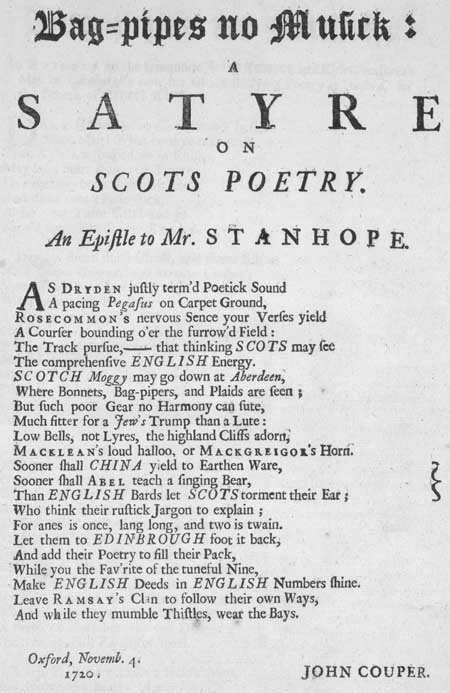Commentary
This ballad begins: 'AS DRYEN justly termed poetic sound, / A pacing Pegasus on Carpet Ground, / ROSECOMMON'S nervous Sence your Verses yield, / A Courser bounding o'er the furrow'd field'. Highlighting the bagpipes as an instrument of torture, John Couper's erudite and light-hearted ballad controversially claims that English culture and poesy is far superior to anything that the Scots can produce. Comparing John Dryden to Allan Ramsay, Couper, who studied poetry at Oxford, states that Scottish poets and musicians can only produce cacophonous sounds that torture the listener's poor ears. Feelings were running very high on both sides of the border after the Union of 1707, particularly following the nearly successful Jacobite Rebellion of 1715, and the ballad should properly be viewed in this context. Early ballads were dramatic or humorous narrative songs derived from folk culture that predated printing. Originally perpetuated by word of mouth, many ballads survive because they were recorded on broadsides. Musical notation was rarely printed, as tunes were usually established favourites. The term 'ballad' eventually applied more broadly to any kind of topical or popular verse.
View Transcription | Download PDF Facsimile
|
 |
Date published:
1720 shelfmark: Ry.III.c.36(071)
 View larger image
View larger image
|


